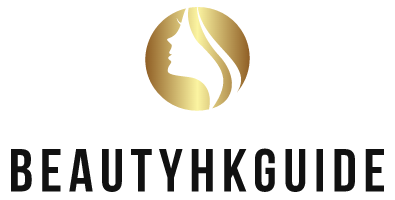
The Internet of Things is a more complex ecosystem than the mobile Internet. Unlike today's mobile phone, which is the hub of all personal devices, iot terminals will be extremely diverse, possibly reaching millions; And there will be a lot more devices than smartphones. By 2020, there will be 50 billion smart devices, an average of seven smart devices per person, and by 2025, there will be 1 trillion smart devices, one smart device for every four square meters of urban area - cities are almost completely covered by smart devices. automatic probe station Considering the complexity of the Internet and the amount of data it generates, it is no exaggeration to say that the Internet of Things is 10 times the size of the mobile Internet.
While the Internet of Things sounds complicated, its future lies in the experience of individual users. "The Internet offers the beauty of simplicity: you can find and control your light bulbs from the same web browser without needing to know or care whether you're using WiFi or 3G. Web browsers don't care whether they need one server or thousands of different servers connected to you via satellite, cable or fiber. private 5g It doesn't care whether the destination is Bluetooth or Zigbee. The Internet works because layers of protocols and services mask the complexity beneath those layers. "
At IDEAS, I saw some of the first companies to achieve "simple beauty" : heads-up mobile cinemas with glasses, whose visual experiences far exceed those of blockbusters and become more surreal; At another company, chips are implanted in the body to provide real-time access to clinically valuable human parameters, and a Chinese designer has begun offering highly personalized smart jewelry. Then there's China's DJI Innovation, which shares photos taken from drones on social networks. In the industrial world, there are robots that can grip as gently and dexterously as a human hand.
The next generation of the Internet may include the Human Internet (IOH). private lte The human body itself is a huge database, that is, in addition to the "normal" communication between people, it also transmits real-time data through sensors in the human body to achieve health applications.
Internet of Things technology can already exist in our living environment, but if we do not truly usher in the Internet information age in China, we must continue to overcome several challenges. As Muller points out, "The Internet of Things allows any device anywhere to join and connect all these devices together, but the challenge is to make this research work as simple, convenient, and smooth as possible for enterprise user management, as web pages interact with devices today." At present, there are few products that perfectly combine devices, applications and services.
Unlike big data, the Internet of Things must have a solid small database to have big data applications. Good products produce valuable data, but that data is small data locked in "information silos." There is still a long way to go to ensure the security of data, protect personal privacy and build trust-based big data services.
Many people are talking about rebuilding a few bats or 100 millet in IOT. However, the business model of the Internet of Things era may be completely different from that of today's Internet companies. According to Gartner, by 2018, half of all iot solutions will be provided by companies less than three years old.
Energy-efficient sensors and controllers are everywhere, the Internet of Things is directly embedded in the ultimate behavior of consumers, and the device itself will become a part of future services, just as carriers now subsidize the purchase of mobile phones, and will become more common. If cars are iot devices, Uber's rise is largely a symbol of the younger generation's preference for convenient transportation rather than car ownership.
The Internet of Things will further promote the deepening of the "sharing economy". For users, use is more important than possession. Real-time data is highly responsive to demand, and owning hardware - from houses to cars - is more about using services, so the most basic consumption pattern in the future will either be users renting hardware to get services, or service providers subsidizing hardware to sell services.
complex ecosystem mobile Internet
0

- community exhibited
- portable geiger counter
- Lithium-ion batteries
- use PS
- insecticidal creams
- welding.battery
- Shangri-La curtains
- SEO process
- Visa Exemption
- microneedle module
- custom sponges
- Generate keywords
- Regular maintenance
- carpet cleaning machine
- File menu
- health of sex
- Crystal White Quartz
- efficiently tackling
- app controlled vibrators
- PDF scheme
- program
- personal websites
- buy motorized curtains
- International Freight Forwarder
- nmp
- promising alternative
- harmonious
- curtain styles
- PDF format
- floor decoration




.jpg?x-oss-process=image/resize,p_100/format,webp)






.png?x-oss-process=image/resize,p_100/format,webp)